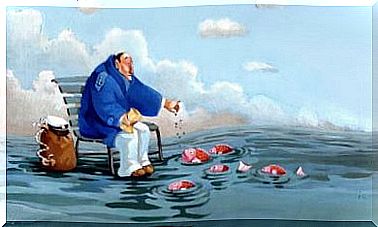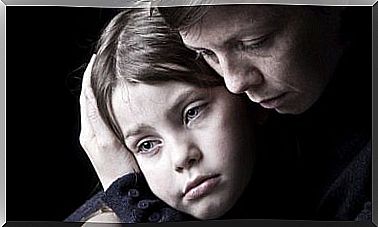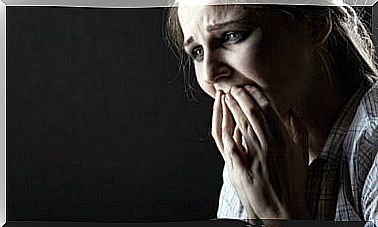Parents’ Influence On Their Children’s Mental Health
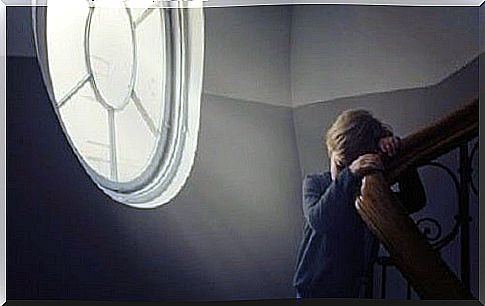
Sometimes the family environment can cause more than suffering. In this sense, the influence of parents can then determine the mental health of their children.
After all, some parents put their children in stressful situations where they can feel humiliated, anxious or helpless. These kinds of experiences are difficult. We also carry them with us in our lives as adults.
Oscar Wilde has said that hardly anyone is aware of what goes on behind closed doors. Sometimes a house with closed doors and windows is the perfect situation for really scary things. Mothers, fathers or other family members can shape an invisible drama that goes unnoticed by the rest of society.
Moreover, this affects the children in significant ways. dr. Anne-Marie Conn of the University of Rochester Medical Center has studied this phenomenon. She noted the following. The influence of a dysfunctional upbringing and the psychological damage it causes can be passed on to the next generation.
Lack of attachment, abuse, physical or psychological violence lead to trauma. So are all the other things that affect a child’s optimal psychological and emotional development. This trauma can then have a ripple effect.
After all, trauma affects mental health and can alter brain development. This can lead to psychological disorders. These can then later influence the way these people raise their own children. Here we clearly see the influence of parents on the mental health of their children.
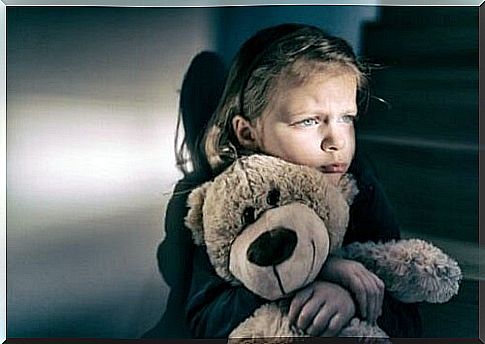
When Parents Harm Their Children’s Mental Health
The influence of parents can determine the mental health of their children. A safe family environment has long-term consequences.
After all, it is an environment that encourages positive emotional development and good self-confidence. This way of parenting gives children the opportunity to reach adulthood with exceptional psychological skills.
In addition, we now know that the dynamics and environment of the family is the main cause of emotional and behavioral problems in children. The Journal of Family Psychology published a study not too long ago. This study stated that a simple tap on the buttocks can have negative consequences.
The influence of parents on children’s behavior
So any gesture, word or behavior that is aggressive in an implicit or explicit way leaves a mark. It will change the child’s behavior. It will even leave an impression on the child’s brain.
So children sometimes grow up in these kinds of environments or with certain harmful parenting strategies (spanking, aggressive communication, or authoritarian caregivers). These children tend to exhibit certain behaviors and traits:
- Low self-confidence.
- They assume that their own needs are not important.
- They also believe that expressing your emotions is negative and wrong.
- Moreover, they also accept these family dynamics as normal and even permissible. (there may be aggressiveness, abuse, or abuse of respect).
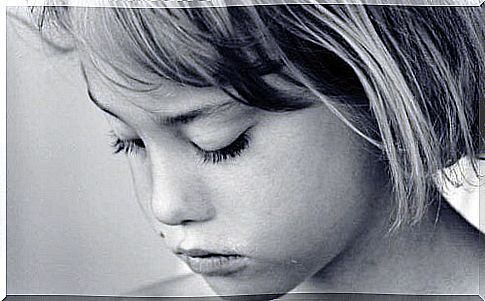
Growing up in this kind of context means that every experience leaves a scar on you in a special way. Yes, it is true that some people do manage to overcome a difficult childhood and live a healthy life free of fear.
However, most people are more vulnerable. These experiences significantly affect their mental health. Now let’s take a closer look at the influence of parents on their children.
How can parental influence affect their children’s mental health?
Chronic stress is one of the most common manifestations of childhood trauma in adults.
States of persistent stress
When a child lives in an unstable environment, it will experience stress. Growing up without a bond with a primary caregiver and feeling insecure and unloved leads to significant anxiety. This form of stress is initially acute. However, over a prolonged period of time, it can become permanent.
Chronic stress can even alter how the brain works. It can affect attention span and memory. Often it translates into overactivity and poor emotional control.
Interdependent Relationships
Growing up in a cold, affectionate household makes many people long for strong emotional relationships. They want to feel valued and safe. However, the constant fear of losing this kind of bond can lead to obsessive behavior. They are so afraid that they easily get into interdependent relationships.
Persistent Anxiety and Helplessness
Growing up without the security and protection of a caring family has consequences. If you don’t have an enriching environment that helps you develop your own identity, you can grow up with serious psychological abnormalities.
You may end up feeling hopeless and having low self-esteem. In this context, you are more likely to be chronically pessimistic and anxious.
Learned helplessness is also a common psychological reality. This is the case when a person assumes that he or she cannot change things no matter what they do. They then assume that they have no control over their own lives.
Psychological mechanisms to “hide” a traumatic past
The mind often cannot handle the weight of trauma. So it uses certain psychological mechanisms to be able to cope with everyday life without allowing the trauma to affect life.
This helps people to function for a period of time. However, it will cause them to develop psychological disorders.
In this regard, dissociative disorders are most common. They affect the identity, memory and perception of your environment. This is a side effect of post-traumatic stress that occurs very often. Trauma is the source of a dissociative disorder.

In conclusion, we summarize that the influence of parents on the mental health of their children can occur in many ways. Getting out of these black holes takes more than time. You also need a lot of courage and a lot of support.
Professional and specialized help will help you take control of your life. Even with a traumatic past, you can build a healthy, dignified, and fulfilling life for yourself.

